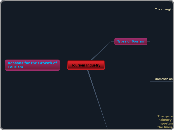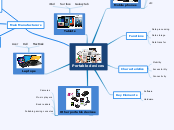eLearning
Resources to share with the group?
Add any article, resource, video on the topic
you find worth sharing with the group.
Another interesting article (Ines Saboya) - click the link >>
Online teaching article (Andréa Peixoto)
A very interesting article (JA)
Very interesting link here (Victor Botelho)
Strengths/Advantages
Resources may be easily accessed. Learnes may get conribution from distinguished guests and experts.
Democratization of education. Reduces costs and saves time.
Different learning styles are addressed (Ines Saboya)
fsfdfdf
Synergy takes place and leads students into a more positive attitude towards their own learning. (Maria Tereza)
Creative teaching increases motivation. (Marina Brazil)
The instructor is more accessible. (Cláudia Furtado)
e-learning can lead students to be active players in their learning processing, becoming more independent and responsible for the process. It also gives the student plenty of room for self-direction and critical thinking. The level of collaboration between teacher - student and among student can reach levels that are not possible in the traditional classroom setting. (Justine Arena)
There's no room for discrimination factors such as gender, age, appearance, disabilities... The focus is on the subject being discussed. (Gabriela)
Class discussions can be aimed to meet student's specific needs. (Carol Piacenti)
This structure allows students time to articulate responses with much more depth and forethought than in a traditional face-to-face discussion situation where the participant must analyze the comment of another on the spot and formulate a response or otherwise loose the chance to contribute to the discussion. (Andréa Peixoto)
The focus of attention is clearly on the content of the discussion and the individual’s ability to respond and contribute thoughtfully and intelligently to the material at hand.(Andréa Peixoto)
It is totally learner-centered and the teacher is a facilitator (Pat Faustino)
Sharing takes place (Erika Oya)
It gives learners time to reflect on their learning (JA)
Learning and Teaching anytime, anywhere (Victor Botelho)
From virtually anywhere (Themer Bastos)
On line learning environments may contribute to student´s self-direction and critical thinking. (Evania)
On line teaching and learning environments follow the concepts of creative teaching for they allow active engagement, besides critical and divergent thinking. (Patricia Ferreira)
Shift in technology X shift in teaching – a change in technology should motivate educators to be more creative and reflect on their objectives and teaching styles both online as well as f2f. (Inez W.)
It is an inappropriate learning environment for more dependent learners.
A perfectly good f2f teacher might not be as effective in an online setting, due to a multitude of reasons, some of which he might not have control of
Main topic
Weaknesses/Disadvantages
Etutor might need a lot of time to design and implement a high quality course.
Unmotivated learners may fall behind ( Ines Saboya)
Instructors/facilitators/teachers must be well prepared to give assistance to students and to make students feel comfortable and secure, otherwise students might feel lonely and not confident about the learning process. (Maria Tereza)
Lack of essential online qualities. A lot of training is required. (Marina Brazil)
Some students have poor witing abilities or are too shy to state their minds. (Cláudia Furtado)
Feelings of isolation. (Alba)
If students are not self-motivated and the instructor doesn't have the necessary online qualifications to mediate an online course can lead to an unsuccessful experience for both the teacher and the students (Justine Arna)
There are still some subjects which should not be taught on line due to technology constraints. (Evania)
Administrators and/or faculty members who are uncomfortable with change and working with technology or feel that online programs cannot offer quality education often inhibit the process of implementation. (Andréa Peixoto)
This is a big barrier in many working places
An online program will be weakened if its facilitators are not adequately prepared to function in the Virtual Classroom. (Andrea Peixoto)
It is very important for e-tutors to be well qualified
Lack of access whether it be for economical or logistics reasons will exclude otherwise eligible students from the course. (Andréa Peixoto)
Discussion groups can lose synergy when groups get too big (20 or +) Patricia Faustino
Faculty members resistance to technology (Luiz Cláudio)
Skills from f2f learning are not always transferrable (JA)
Technology illiteracy (Victor Botelho)
Demands on self-discipline (Themer Bastos)
Limitations of technology (Andre Netto)
Online courses may not be appropriate for younger students or students who are dependent learners and have difficulty assuming responsibilities required by an online program of studies. (Inez W.)









